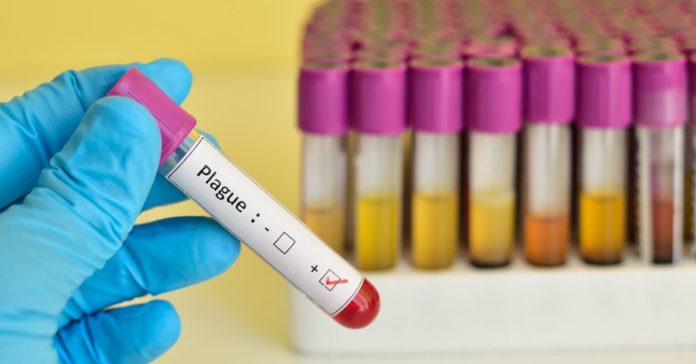Overview
Plague, a severe bacterial infection that spreads via fleas, has caused many deaths in the past. It was first reported in medieval times and caused millions of deaths across the globe. Now ,less than 5000 worldwide cases are found every year in the rural parts of Africa, Asia, and the United States. If left untreated, plague leads to serious health complications and even death.
About plague
Plague is a dangerous bacterial infection with a high fatality rate. It is caused by bacteria called Yersinia pestis. There are 3 forms of plagues, namely, Bubonic plague, Septicemic plague, and Pneumonic plague. Wild rodents and fleas transmit plague.
- Bubonic Plague: Bubonic plague causes swelling in the lymph nodes. Within a week of the infection, lymph nodes in your armpits or neck get swollen and tender.
- Septicemic Plague: This form of plague causes an overgrowth of bacteria in your bloodstream leading tp sepsis . It may result in gangrene and other health complications.
- Pneumonic Plague: Pneumonic plague affects the lungs and causes breathing problems.
What are the signs and symptoms of plague?
Bubonic plague
Swollen lymph nodes (buboes) develop typically in the first week after you get infected. Buboes may be:
- Situated in the neck, armpit, or groin
- About the size of an egg (chicken)
- Tender and firm to your touch
Other bubonic plague signs and symptoms include:
Septicemic plague
- Chills and fever
- Extreme Weakness
- Diarrhea, Vomiting and abdominal pain
- Bleeding from rectum, under your skin, your mouth or nose
- Shock
- Blackening and gangrene (death of tissue) in extremities, most commonly your toes, fingers and nose
Pneumonic plague
Pneumonic plague affects your lungs and spreads from one person to another through cough droplets. The signs and symptoms of pneumonic plague include :
- Nausea and vomiting
- Cough with sputum (bloody mucus)
- Difficulty breathing
- Headache
- High fever
- Chest pain
- Weakness
Pneumonic plague progresses quickly and may cause respiratory failure and shock within two days of the infection.
What causes plague?
The plague is caused by bacteria called Yersinia pestis. Fleas bite infected people or animals and transmit plague to another person or host.
Animals like rats, rodents, mice, rabbits, chipmunks, prairie dogs and voles spread the disease. When you inhale droplets of cough, you may get a pneumonic form of plague. Domestic dogs and cats may get infected with plague from from eating infected rodents or flea bites.
Veterinarians have a greater risk of coming into contact with infected domestic cats and dogs. Individuals working outdoors in palaces where plague-infected animals are common are at a higher risk of getting plague as well. Hiking, camping or hunting in the places where plague-infected animals reside can also increase the risk of being bitten by an infected flea.
When to see a doctor?
If you experience symptoms like swollen lymph nodes, fever and breathing problems or If you have visited a place where plague is prevalent, it is best to get in touch with a doctor.
Call 1860-500-1066 to book an appointment
What is the most effective treatment for plague?
If you are diagnosed with a plague, the doctor will prescribe strong antibiotics to fight the infection.
A few forms of plague can be life-threatening that will need you to be admitted to a hospital under intensive care. More than 50% of people with untreated bubonic plague lose their lives.
How to prevent plague?
You can prevent plague by taking certain simple but effective steps such as,
- Keep your house pest and rodent-free.
- Use anti-flea products. Keep your pets clean and pest-free.
- Take precautions to keep rodents away from your house.
- Use insect repellents and do pest control on a regular basis.
- Keep your house clean. Do not keep pet food open for a longer duration as it may attract rats and mice.
Conclusion
Plague has become an extremely rare bacterial disease. It can be prevented by taking certain measures. Untreated plague may put your life at risk.
Frequently Asked Questions (FAQs):
Is plague curable?
Yes, with the invention of antibiotics, the plague has become curable. However, it needs to be treated at the right time.
Can I get vaccinated against plague?
Unfortunately, there is no vaccine available against plague. It has become a rare disease.Prevention and early diagnosis can cure it.
Can plague cause meningitis?
Yes, in rare cases, the plague may lead to dangerous meningitis.


















